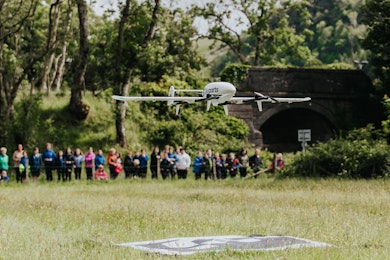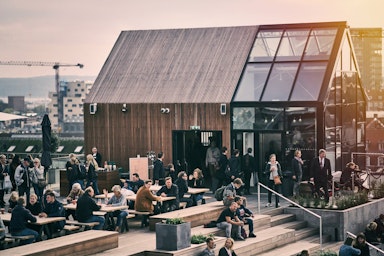New Nordic collaboration to promote Danish start-ups
The Nordic Council of Ministers and PUBLIC have joined forces in a project to promote the best crisis solutions from tech start-ups across the Nordic and Baltic region. The project is growing fast.

While most of the world is still holding its breath and trying to duck the worst economic blows from the corona crisis, the venture company PUBLIC and the Nordic Council of Ministers are accelerating an initiative to promote freshly launched solutions from around the Nordic countries and the Baltic region.
Through the platform Nordicbaltic.tech, the two organisations are working to gather a database of all the various solutions offered by networks, ecosystems and individual companies across the Nordic and Baltic countries.
The project aims to bring visibility to both solutions and concrete offerings, as well as collaborative initiatives and working groups. The Danish offerings include edTechDonor, which gathers digital education services that are free to use for the duration of the crisis, and the Copenhagen Capacity initiative ‘Hack The Crisis Denmark’.
“We created this initiative to have a platform for gathering and showing all the solutions that exist to the crisis we are facing. We saw a need to provide a spotlight on the tech responses that have come from across the Nordic and Baltic countries,” says Kiann Stenkjær Hein, Managing Director of PUBLIC Denmark.
Beyond GovTech solutions
While PUBLIC focuses on GovTech solutions, i.e. technology for use in the government sector, including education and healthcare, Nordicbaltic.tech has a much wider scope. It encompasses initiatives from a range of sectors where the common denominator is that a product or expertise is offered that specifically addresses some of the particular needs that have appeared with the corona crisis.
Kiann Stenkjær Hein says there are now 126 start-ups on the list and some 103 COVID-19-related initiatives. But the list is still growing.
The individual countries in the Nordic and Baltic region have responded differently to the pandemic, and at different times. But nearly all the countries have opted for some type of lockdown of society, encouraging citizens to work from home and observe social distancing measures.
New solutions for new problems
The situation has given rise to entirely new problems by disrupting our normal working lives dramatically within a very short space of time, and some citizens have had to isolate completely due to being considered more at risk. Both globally and in the Nordic region, economies have plunged – and many people have lost their jobs.
Both in Denmark and across the other Nordic countries, various initiatives have emerged to target some of the issues that have suddenly sprung up, such as in home-schooling children or handling the acute pressures on the healthcare sector.
These initiatives have been developed over the past few weeks and months.
“We are now in a dialogue with the Nordic Council of Ministers about what comes next. Among other things, we are encouraging the public sector to flag up the challenges they are currently facing and are looking for ways of solving – and where tech start-ups could offer new technological solutions. We would like to help promote the use of technology to create a better society, and GovTech solutions are precisely about all of our lives. That is why it’s important to create more visibility for solutions that can help both in handling the current crisis and in re-establishing our society after coronavirus,” Kiann Stenkjær Hein says.
“We’ve seen how collaboration across the public sector and start-ups can work in these times of crisis. In the UK, we worked with the British healthcare authorities to launch the TechForce19 programme. That has led, in a very short space of time, to concrete and inspiring solutions to social challenges coming from tech start-ups,” she says
She points to the Nordic and Baltic countries as offering a very homogenous market with exciting growth opportunities for tech start-ups, even for products that may be specific to a particular challenge in one of the countries.
“The Nordics are so alike. We are open societies with a big welfare sector and a focus on using tech to create a better society. That’s why I also believe that GovTech is now standing at the foot of the mountain. This is a really big sector in need of fast solutions and the ability to adapt quickly – not least on the other side of the corona crisis – and these are things that the public sector is struggling to deliver on its own,” Kiann Stenkjær Hein says.
As yet, it is too early to quantify the damage – and thus impossible to say whether the crisis will be a deep and protracted one, or whether things will improve very quickly. In Denmark, the lockdown is expected to continue in some form or another for at least a few more months – but it is as yet uncertain what lies ahead while COVID-19 is still circulating.
This also means that many of the problems that the crisis has thrown up are far from solved.
“We need to reach out to innovation and tech and give new technology more space in public-sector innovation. Tech companies can and do want to contribute to solving major challenges for society, and the whole world is now looking to the Nordic region because we’re so digital. This is a position we need to keep and expand – and that is why we would like to see the Nordics become a single growth area for GovTech solutions,” she says.
Interest in the platform is steadily growing, with around 1,000 visitors a day in the first few days since launching.









